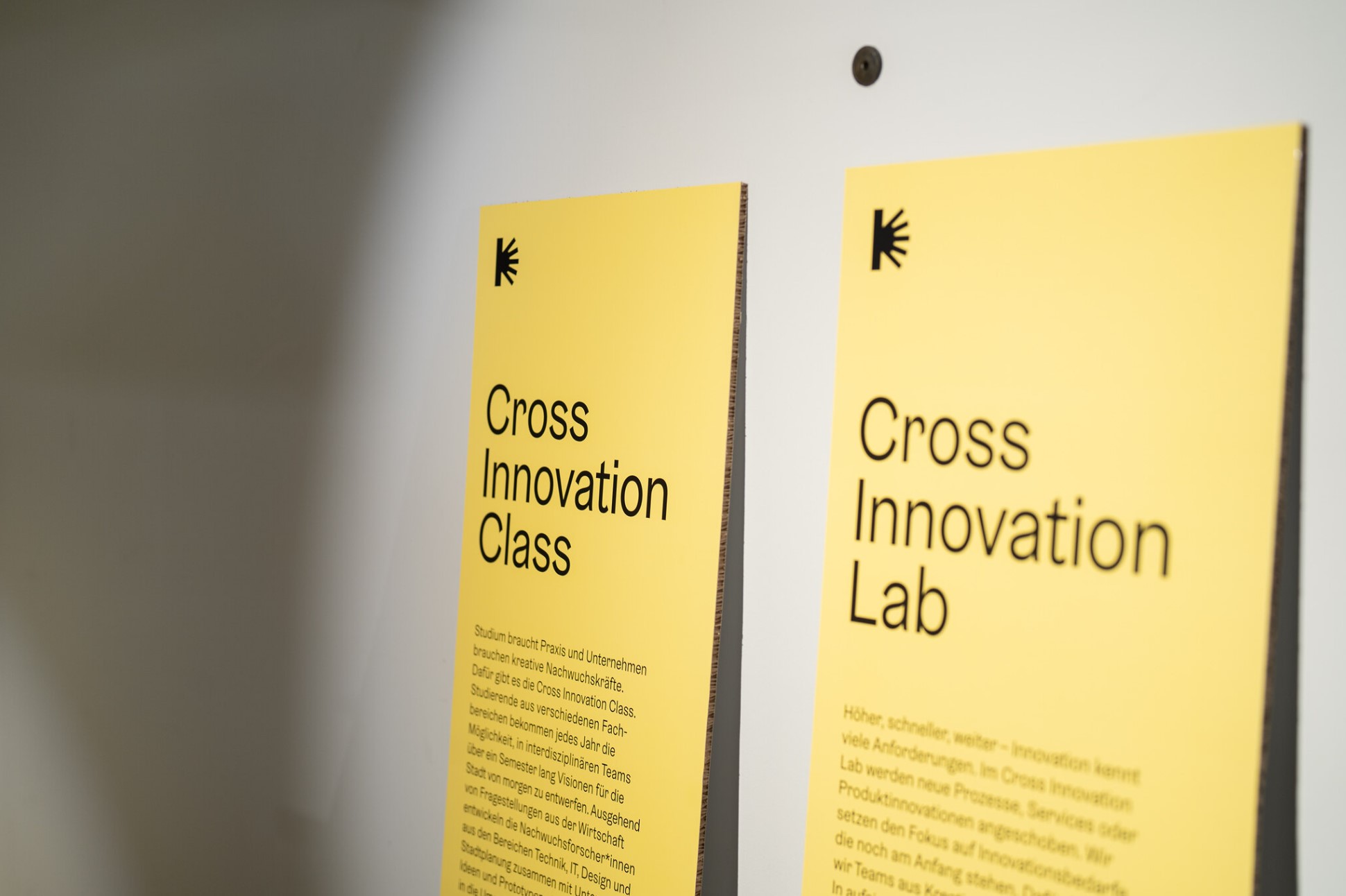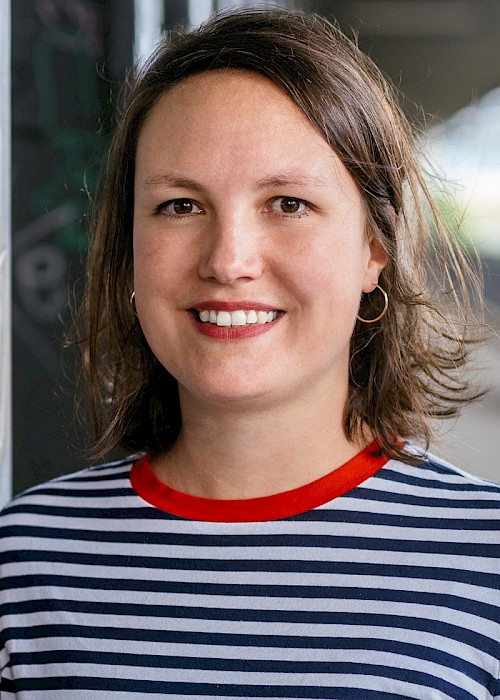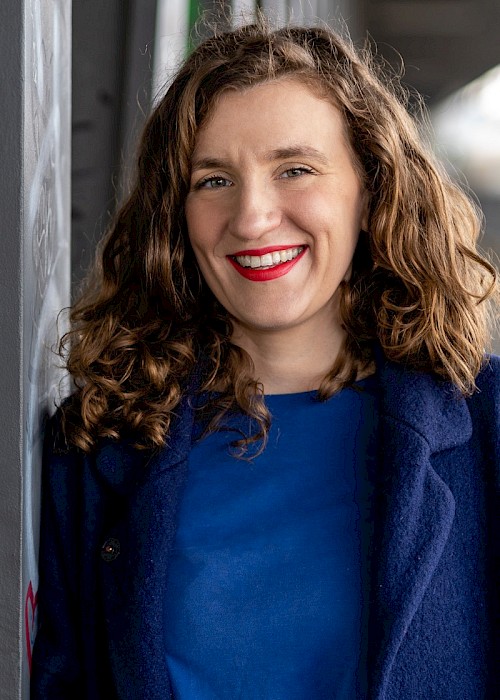Cross innovation formats
In over six years of experience with cross innovation, we have developed formats with different objectives. In addition to standardised offers, we also provide individually tailored solutions.
In over six years of experience with cross innovation, we have developed formats with different objectives. In addition to standardised offers, we also provide individually tailored solutions.


Seit 2021 teilt sich Louisa Steinwärder mit Raffaela Seitz die Leitung des Cross Innovation Hub. Zuvor war sie für die Konzeption und Organisation branchenübergreifender Angebote im Bereich des Cross Innovation Hub zuständig.
Sie studierte Kulturwissenschaften und Germanistik an der Universität Bremen und der Universidad de Valencia. Im Rahmen ihres Masterstudiums der Deutschsprachigen Literaturen an der Universität Hamburg verbrachte sie zwei Monate als DAAD-Stipendiatin an der Istanbul Üniversitesi. Neben der Organisation von Kulturveranstaltungen/Projekten war Louisa Steinwärder im Kommunikationsbereich von Theaterhäusern und Festivals tätig, zuletzt am Hamburger Thalia Theater und bei dem Festival „Theater der Welt“.
Der Cross Innovation Hub wird vom Europäischen Fonds für regionale Entwicklung (EFRE) gefördert.

Seit 2021 teilt sich Raffaela Seitz mit Louisa Steinwärder die Leitung des Cross Innovation Hub. Zuvor widmete sie sich der Konzeption und Organisation branchenübergreifender Angebote im Bereich des Cross Innovation Hub.
Als studierte Kulturwissenschaftlerin (Leuphana Universität Lüneburg) und Kunsthistorikerin (University College London) mit ökonomischem Studienhintergrund (Universität Mannheim, Leuphana Universität Lüneburg, London School of Economics and Political Science) bewegt sich Raffaela Seitz an der Schnittstelle von Kunst, Kultur, Wissenschaft und Wirtschaft. Bevor Raffaela Seitz das Team der Kreativ Gesellschaft verstärkte, war sie im Bereich strategische Innovationsberatung und Trendforschung tätig.
Der Cross Innovation Hub wird vom Europäischen Fonds für regionale Entwicklung (EFRE) gefördert.